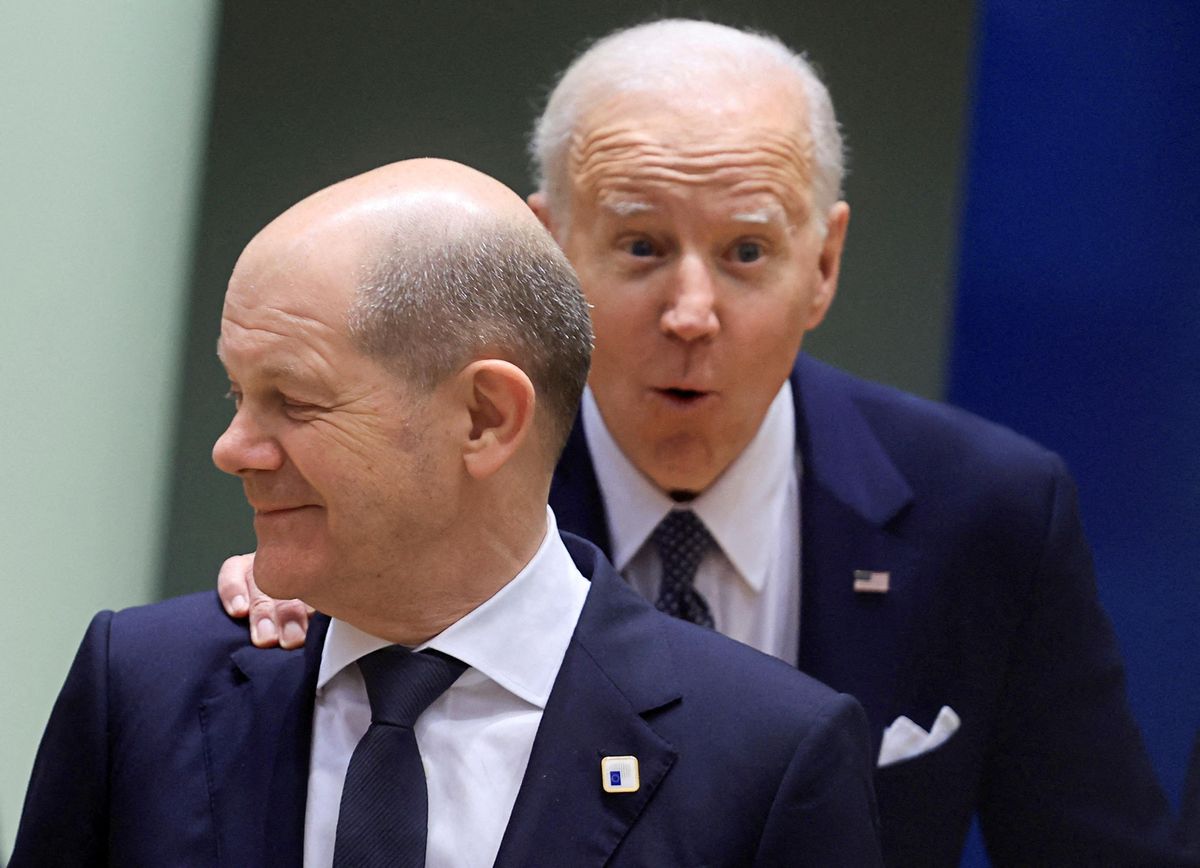EU signs US gas deal amid Biden's European trip
US President Joe Biden kicked off his meetings in Europe on Thursday with a few big salvos. Ship more weapons and humanitarian aid to the Ukrainians? Check. Welcome 100,000 Ukrainian refugees to the US? Check. Zoom with Ukrainian President Volodymyr Zelensky? Of course. Biden also said Russia should be booted from the G20, a grouping of the world's largest economies, ahead of a summit later this year in Indonesia.
The G-7 countries and the EU leveled new sanctions on Thursday against more than 400 Russians, including members of the Russian legislature. But the allies still aren't giving Zelensky what he really wants: a NATO-enforced no-fly zone to let civilians escape Russian attacks.
On Friday, the US and EU announced a major new gas deal that will see the US provide the EU with at least 15 billion additional cubic meters of liquified natural gas — last year it provided 22 billion cubic meters — by the end of 2022. The move is the latest bid to help reduce Europe's reliance on Russian gas. European leaders have shown little appetite for following the American example of banning Russian oil and gas outright, which German Chancellor Olaf Scholz warned would trigger a recession on a continent heavily dependent on Russian fossil fuels. Vladimir Putin, who knows this, recently hatched a cunning plan to cash in on his immense energy leverage over the EU ...
Putin's ruble ruse
With the ruble at historic lows and energy prices soaring over Western sanctions against Russia, Putin has found his own way to weaponize the financial system: he wants countries that backed anti-Russia sanctions to pay for Russian commodities in rubles. Why? First, he’s throwing the sanctions weapon right back at the West and artificially increasing demand for Russia's currency to prop up the ruble. Second, the Russian central bank desperately needs to exchange more rubles for hard currency to avoid defaulting on its sovereign debt. Third, a stronger ruble will help mitigate the impact of sanctions on ordinary Russians, whose cost of living has jumped 14% in recent weeks. Putin hopes Europeans are hungry enough for Russian oil and natural gas that they will ultimately cough up rubles. But to do so, Moscow's European customers would have to open accounts in the few Russian banks that haven't been sanctioned. And that's risky business ... because those banks could next.


















